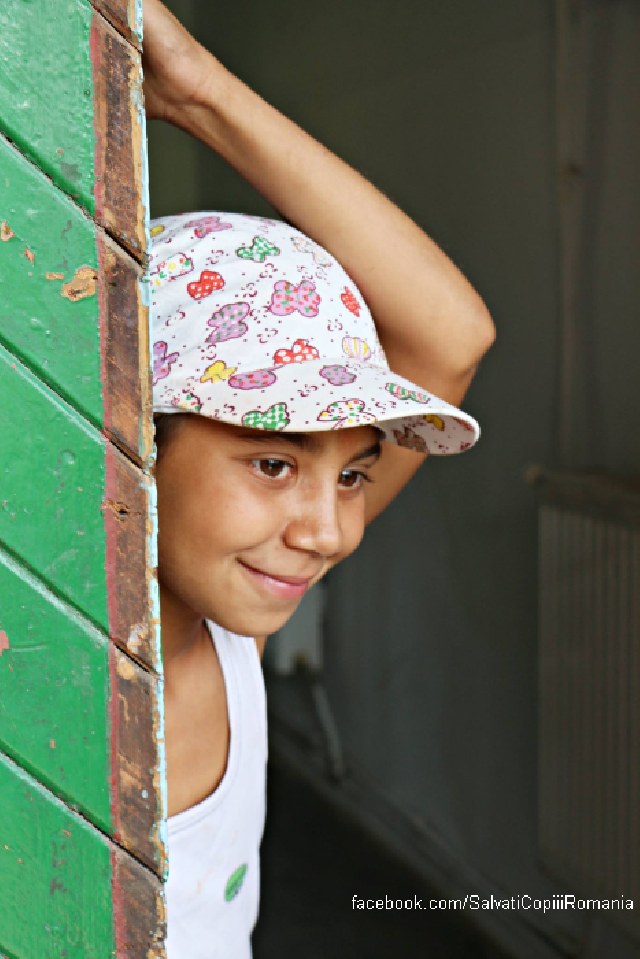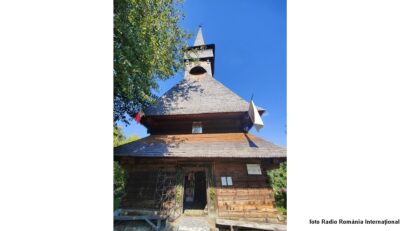Containing violence among children
Bullying is a worrying phenomenon, in terms of scope and psychological effects

Christine Leșcu, 30.08.2017, 00:30
A phenomenon that the Romanian society has become increasingly aware of, aggression among children or bullying is a multifaceted issue, which was analysed in a first survey launched and carried out by the “Save the Children NGO last year. Meanwhile, parents, educators and authorities organise various debates, trying to find the best ways to contain violence among children, which is a really worrying issue, given its magnitude, both in terms of the psychological consequences it produces and from a strictly statistical perspective. In schools, 3 in 10 children are excluded from their group of colleagues, 3 in 10 children are threatened by their colleagues and 1 in 4 children has been humiliated in front of his or her colleagues. These are some of the conclusions drawn in the survey carried out by “Save the Children. Oana Niculae, a paediatric psychiatrist with the aforementioned NGO has more on this:
Oana Niculae: “What concerns me the most is that 70% of children say they have witnessed bullying. (…) In my opinion, every child who takes part in or witnesses this type of aggression is a victim. Our children are permanently witnessing bullying, most likely than not as often as on a weekly basis.“
Under these circumstances, what is the reaction of some parents whose children have been aggressed? Ana Maria Mitruş, the author of the blog meseriadeparinte.ro, says her eldest daughter, a fifth grader, has been the target of bullying. Here she is with details:
Ana Maria Mitruş: “My daughter has somehow been the target of attacks made by older female colleagues. In my opinion, these were acts of wickedness meant to establish hierarchies among children. This means that older pupils do not let younger ones to go up, to the higher floors, where there are the classrooms of the seventh and eighth graders. They are also denied access to the locker rooms. My eldest daughter has never changed clothes in the locker room since she became a fifth grader. She puts on her training suit at home, to be ready for the sports class. Her sports class unfolds simultaneously with that of older colleagues who push away younger girls from the locker rooms, so that they can change clothes. Children try to handle the issue the best they can.
The mothers reaction was to get the school management involved in the issue, just like the rest of the parents, but to no avail. However, Ana Maria Mitruş has taught her daughters to ask for the help of adults instead of having a violent response, as would be their first impulse in such cases. This actually happened once: Ana Maria Mitrus daughter responded with aggression to an act of aggression against her. Shortly after that, she told her mother what had happened:
Ana Maria Mitruş: “Fortunately, it was only a minor conflict, nothing serious. Im not afraid she might, in turn, become an aggressor. While her first reaction was to respond aggressively when being attacked, now after weve talked about it, she knows she should request the assistance of grown ups. But, although I have confidence in my daughters and in the way I have brought them up, I will not sit back and watch. That is why I maintain a close relation with the coaches and the teachers. In the end, our children are what we raise them to be. Whether they do good or bad things, the responsibility is ours, it lies with the parents.
Actually, it is within a family that the origin of wickedness should be searched for. Schools are only compelled to keep violence from spreading.
Oana Niculae: “No happy child will ever be aggressive. We, as experts, always turn to the family to search for the causes of aggressive behaviour. Unfortunately, most aggressiveness stems from fear rather than anger. Negative emotions are always externalised this way. The joy of hurting others originates in a direct, personal experience, that of having been hurt or of having experienced abuse from others.
Unfortunately, as far as the adults involvement goes, the childrens perception is quite clear, as shown by the survey conducted by “Save the Children: they notice that adults are relatively tolerant of this phenomenon, and hardly ever step in. In spite of this, awareness raising campaigns and efforts to contain bullying started as early as 2004. Back then, the Institute of Education Sciences (IES), jointly with UNICEF, launched a first survey about violence in schools. Ciprian Fartusnic, the current director of IES recalls:
Ciprian Fartusnic: “When we conducted the first survey, one of the problems was that violence was defined too broadly. If an incident was not reported to the police, or if no blood had been shed, the incident was not rated as violence, but as a misunderstanding among children. A first strategy on the issue was largely drafted based on the results of this survey, but it was only a framework strategy. The authors expected each school to follow the guidelines of this framework but to draft its own strategy against violence, adapted to the local problems. This didnt happen and thats why in 2006 our Institute and UNICEF put together a guidebook for headmasters, to show to them how to develop an anti-violence strategy in their school. Nothing major has happened. Therefore, in 2010, together with “Save the Children and the Education Ministry we drafted a national training program for headmasters and teachers, to show them how to approach the phenomenon of violence, step by step. (…) The project came to a close in 2011. Now we receive signals that, at least in some counties, specific activities have been organised in schools. But we are yet to find out whether, apart from raising awareness of the phenomenon, these activities do have a direct and measurable impact in curbing the phenomenon.
However, prevention is more efficient than any efforts to contain the phenomenon or any post-factum intervention. Therefore, education experts say school efforts should be channelled towards prevention: stifling and controlling from the very beginning childrens first urges to humiliate, harass and attack their peers.
(translated by: Diana Vijeu)






























